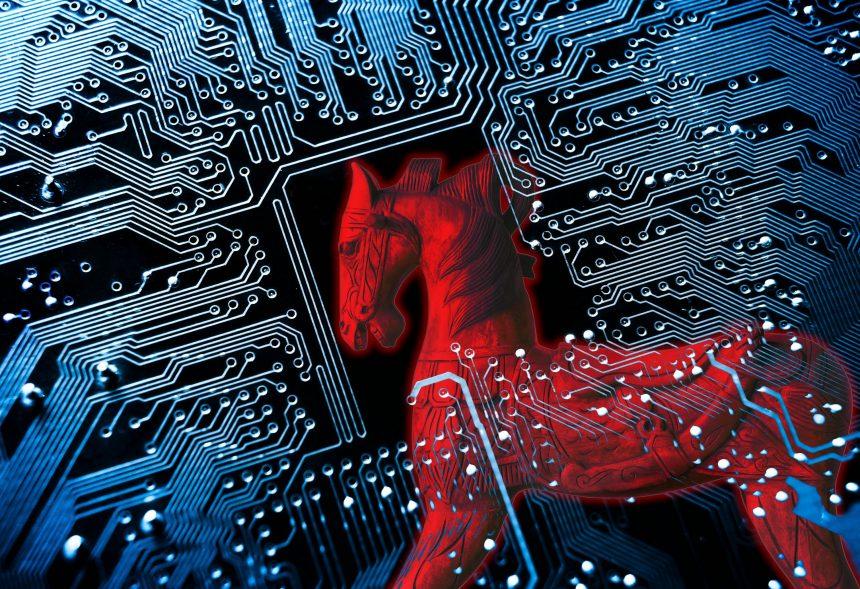Trojan horse malware, often referred to simply as “Trojans,” is a type of malicious software designed to infiltrate and compromise systems by disguising itself as legitimate software. These threats typically aim to exploit the trust of the user by posing as harmless or useful programs, which makes them particularly dangerous. The name “Trojan” comes from the ancient Greek story of the Trojan Horse, where Greek soldiers hid inside a giant wooden horse to infiltrate the city of Troy. Similarly, Trojan malware tricks users into downloading and executing it by camouflaging itself as something useful, all while quietly performing harmful actions once installed. Trojans can be used for a variety of purposes, including stealing personal data, spying on the user, creating backdoors for other malicious attacks, and more. This article focuses on one such Trojan: Trojan.Win64.Mikey.Gtzmtb, explaining how it works, its consequences, and how you can remove it from your system.
Remove annoying malware threats like this one in seconds!
Scan Your Computer for Free with Spyhunter
Download Spyhunter now, and scan your computer for this and other cybersecurity threats for free now!
What is Trojan.Win64.Mikey.Gtzmtb?
Trojan.Win64.Mikey.Gtzmtb is a malicious Trojan horse specifically targeting Windows 64-bit operating systems. Once installed on a system, this Trojan can cause severe harm, including stealing sensitive data, compromising system performance, and enabling other types of malware to be installed. The Trojan is usually delivered through deceptive tactics, such as phishing emails, malicious websites, or bundled with other software. It may appear to be part of a legitimate program or come disguised as an update for an existing application. Upon execution, Trojan.Win64.Mikey.Gtzmtb can carry out a variety of malicious activities, including installing additional malware, logging keystrokes, and stealing login credentials for online accounts.
One of the primary dangers of this Trojan is its ability to remain undetected by traditional security measures for a period of time. It often hides within the system, masking its activities to avoid detection. Once activated, it can open backdoors, allowing hackers to control the infected machine remotely. Additionally, the Trojan can interfere with system performance, leading to slowdowns and crashes, further complicating the situation for the user.
Symptoms of Trojan.Win64.Mikey.Gtzmtb Infection
Detecting Trojan.Win64.Mikey.Gtzmtb is crucial to mitigating its impact on your system. The symptoms can vary, but here are some common signs of infection:
- Unusual system behavior: You may notice a significant slowdown in your computer's performance, including lag when launching programs or during online activities.
- Unexpected pop-ups or advertisements: The presence of unexpected pop-ups or intrusive advertisements is a common symptom of malware infections, especially Trojans.
- Changes to browser settings: Trojan.Win64.Mikey.Gtzmtb can alter browser settings, redirecting you to malicious or phishing websites without your consent.
- New or unfamiliar programs: If you notice unfamiliar software running on your machine, it may have been installed by the Trojan.
- Security alerts and warnings: Some Trojans will trigger fake system alerts, often trying to convince users to download further malicious software.
Detection Names for Trojan.Win64.Mikey.Gtzmtb
To confirm that your system has been infected with Trojan.Win64.Mikey.Gtzmtb, look for the following detection names used by antivirus and anti-malware software:
- Trojan.Win64.Mikey.Gtzmtb
- Trojan:Win64/Mikey.Gtzmtb
- Win64/Mikey.Gtzmtb
- Trojan.Generic
- Trojan.Mikey.Gtzmtb
If any of these names appear in your antivirus or anti-malware software scan results, it is a strong indicator that your system is infected with this specific Trojan.
Similar Threats
While Trojan.Win64.Mikey.Gtzmtb is a particularly harmful threat, there are other similar Trojans you may encounter. These include:
- Trojan:Win32/Adload: A malware that can lead to data theft, system hijacking, and the installation of other malicious software.
- Trojan.Win32.Sasser: A well-known Trojan that can disrupt the normal functioning of a computer and allow unauthorized access to the system.
- Trojan:Win64/Emotet: A multi-functional Trojan used to steal sensitive data, install other malicious payloads, and conduct targeted phishing attacks.
How to Remove Trojan.Win64.Mikey.Gtzmtb
If your computer is infected with Trojan.Win64.Mikey.Gtzmtb, prompt action is required to prevent further damage. Below is a detailed step-by-step guide to remove the Trojan:
- Use Safe Mode with Networking: Reboot your computer in Safe Mode with Networking to prevent the Trojan from running during startup. To do this, restart your computer and press
F8(or the key specified by your device’s manufacturer) before Windows loads. Select “Safe Mode with Networking” from the boot options menu. - Run a Full Antivirus Scan: If you have an antivirus program, perform a full system scan in Safe Mode. Ensure the software is updated to detect the latest threats. If your antivirus detects Trojan.Win64.Mikey.Gtzmtb, follow its prompts to quarantine or delete the infected files.
- Use SpyHunter to Perform a Deeper Scan:
- Download and Install SpyHunter: SpyHunter is a trusted anti-malware tool that specializes in detecting and removing Trojans like Trojan.Win64.Mikey.Gtzmtb. After downloading, install the program and run it on your system.
- Run a Scan: Use SpyHunter to run a full system scan. It will detect any remaining files associated with Trojan.Win64.Mikey.Gtzmtb and remove them. The program will also check for other potential threats that may have been missed.
- Delete Malicious Files: After the scan is complete, follow SpyHunter's instructions to delete or quarantine the malicious files.
- Manual Removal (Advanced): If you are tech-savvy, you can attempt to manually remove Trojan.Win64.Mikey.Gtzmtb. This involves navigating through your system’s files and deleting the specific infected files. However, this process can be complex and risky for less experienced users, so it's best to use automated tools like SpyHunter.
- Reset Browser Settings: After removing the Trojan, reset your web browsers to their default settings. This will undo any changes made to your browser by the Trojan, such as unwanted toolbars, extensions, or homepage settings.
- Update Your System: Ensure your operating system and all installed software are up to date to patch any vulnerabilities that could be exploited by malware in the future.
- Backup Your Files: Before performing any type of removal, it’s always a good idea to back up important files. Use external storage or a cloud service to store your valuable data, in case any files are lost during the removal process.
Preventing Future Trojan Infections
To prevent Trojan horse malware like Trojan.Win64.Mikey.Gtzmtb from infecting your system again, follow these precautions:
- Be cautious with email attachments and links: Avoid opening email attachments or clicking links from unknown senders. These are common methods for Trojans to spread.
- Download software from trusted sources: Only download programs from reputable websites. Be wary of free software, as it can sometimes contain bundled malicious files.
- Install antivirus software: Ensure you have an up-to-date antivirus or anti-malware program, such as SpyHunter, to protect your system in real time.
- Enable a firewall: Use a firewall to block incoming malicious traffic and reduce the risk of remote access by hackers.
- Regularly update your system and software: Keep your operating system and applications up to date to ensure you have the latest security patches.
Conclusion
Trojan.Win64.Mikey.Gtzmtb is a dangerous piece of malware that can severely impact your computer’s performance, steal sensitive data, and open the door to further attacks. By following the steps outlined above, including using SpyHunter to scan and remove the Trojan, you can protect your system and prevent future infections. Remember, always be vigilant when downloading software or opening emails to minimize your risk of encountering Trojans or other types of malware.




